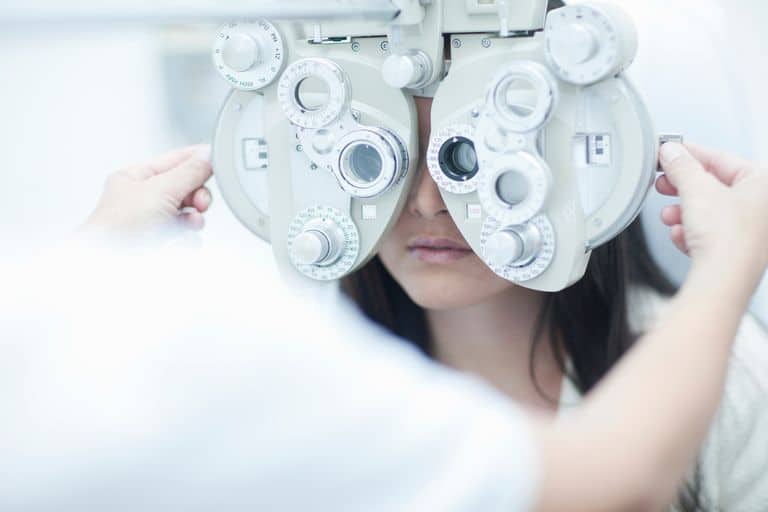Contents:
- Medical Video: Rotating Night Shift Work and Risk of CHD Among Women
- Human body cycle
- 1. At 12.00-20.00 the digestion process occurs
- 2. At 8:00 a.m. to 4:00 the absorption process takes place
- 3. At 4:00 a.m. to 12:00 a process of disposal takes place
- What are the consequences if our body cycles are reversed?
- 1. Sleep disorders
- 2. At risk for type 2 diabetes
- 3. Long-term obesity
- 4. Increases the risk of heart disease
- What is the impact on women?
- How do you prevent the adverse effects of night work?
Medical Video: Rotating Night Shift Work and Risk of CHD Among Women
Working at night certainly has many negative effects. But sometimes work requires us to work at night, especially if your profession is a pilot, security officer, hospital staff, 24-hour shopkeeper, employees at bars and cafes that are open at night, and so on. For those who work at night, of course they will lack time to rest. Although there are some of them sleeping for 6-8 hours in the afternoon and feel they have lived normally but this certainly will not be normal for their bodies.
Human body cycle
In running the system, the human body will naturally work according to the cycle. Based on an extensive study of the physiological cycle, the digestive process consists of three cycles based on three bodily functions, namely absorbing food extracts, digesting food, and removing food waste. Although all three functions work simultaneously, each of them will work intensively for eight hours at a certain time.
1. At 12.00-20.00 the digestion process occurs
Throughout this cycle it is a good time to fill the stomach with solid food. If in this cycle your stomach is not filled, then you will feel very hungry.
2. At 8:00 a.m. to 4:00 the absorption process takes place
Throughout this cycle there is a process of absorption of most of the digestible food substances and the distribution of food substances to all parts of the body. Therefore, sleeping late or eating late at night can reduce the energy supply needed for the absorption process. Barriers to one cycle can disrupt the next cycle.
3. At 4:00 a.m. to 12:00 a process of disposal takes place
At this stage, a lot of pulp will be released, so that many people feel they have no appetite in the morning. This is very natural, because the body is experiencing a cycle of disposal. The body does not really need solid food such as rice and meat which is difficult to digest during this time, instead by eating foods that are difficult to digest the body will lack energy for the disposal process.
What are the consequences if our body cycles are reversed?
Workshiftnight makes our body cycle not follow the normal cycle. What should be the time for the body to rest and absorb food from 20:00 to 04:00, instead we use it for activities, and even eat. Conversely, at hours when the body is supposed to do disposal or digestion, we actually sleep.
What is the effect on the body?
1. Sleep disorders
About 10% of workers who work at night have sleep disorders, including insomnia, excessive sleepiness, and have difficulty staying awake at work. Dr. Charles Samuels, medical director of the Center for Sleep and Human Performance in Calgary, stated that workersshift is the person who has the right to sleep deprived. Even though they can change their sleep schedule to morning or afternoon, it will still be very difficult because it is against the body clock.
2. At risk for type 2 diabetes
According to a study published in the journal Occupational & Environmental Medicine for 226,652 participants, those who worked at night had a risk of 1.09 times greater diabetes. Then, the next study in the journal PLoS Medicine shows that workers have work time shift risk of developing type 2 diabetes, it is caused by the effect of changing time on insulin activity which causes a rise in blood sugar in the body.
3. Long-term obesity
Sleeping too long or sleeping not according to the body clock will cause obesity, as produced by research at Bringham and Women 's Hospital. Because night workers often have a hard time sleeping during the day, they face two circadian disorders due to working at night and lack of sleep during the day. Obesity occurs because of a decrease in leptin (a hormone that regulates body weight) and can result in an increase in appetite twice as well as an increase in blood sugar levels due to changes in insulin activity.
4. Increases the risk of heart disease
Working at night can increase the risk of heart disease, based on research published in the British Medical Journal. The study involved 34 studies, and the results showed that workers who worked at night had a 7% risk of heart attack, 1.6% ischemic stroke, and 7.3% coronary heart disease.
What is the impact on women?
A study from Denmark found that those who worked at night had a miscarriage risk of 85% higher than normal workers. In fact, a 2010 study in Italy showed a relationship between workshiftrisk of early birth and low birth weight.
According to data collected from the US Nurses Health Study involving 240,000 nurses and observed for 30 years, shows, women who workshift night for several years has a higher risk of developing breast cancer, colon cancer, and cancerendometrium.
How do you prevent the adverse effects of night work?
If you are pregnant, pay attention to the adequacy of your sleep and weight. Ask for help from experts if you get less sleep or have trouble sleeping. And, if you work night for several years, talk to your doctor about the possibility of taking melatonin supplements. These supplements tend to be safe, but quite complex and you need the guidance of an expert to use them.
READ ALSO:
- 5 Dangers of Working Excessively for Your Health
- 9 Wrong Myths About Type 2 Diabetes
- Why Are My Blood Pressure Medications Not Working?












